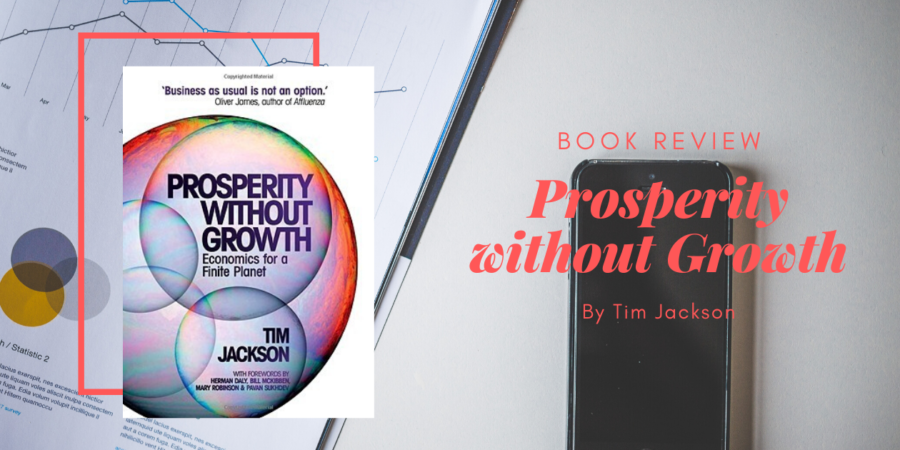I don’t normally see the National Reading Movement SG account share economic books so when it talked about Prosperity Without Growth by Tim Jackson, I made a note to borrow it. It’s been some time since I read a serious economics book and I wanted to challenge my brain a little.
In Prosperity Without Growth, Tim Jackson makes the argument that the perpetual growth model that countries are following are not sustainable. What we need, he argues, is a redefinition of the term “prosperity”, divorcing it from the idea of continual growth, and commitment to this new idea of prosperity without growth on the part of developed nations, so that developing nations can continue to grow without overtaxing our planet.
From the book, I liked the chapter on the myth of decoupling (that we can continue to grow without harming the planet if we reduce the economic impact per output) by clarifying the difference between absolute and relative decoupling, and how relative decoupling will not be enough to save our planet.
I also liked the chapter that discussed Keynesianism and the ‘Green New Deal’. It was interesting to read the forces driving the green new deal, their thinking, and pitfalls of it. Combined with the chapter on the myth of decoupling, the book makes a persuasive case that we cannot afford to keep growing the economies without thinking of the environment.
Where the book falls short, regretfully, is in its definitions and recommendations. Firstly, the redefinition for ‘prosperity’ is never concretely finalised. Appendix 1 does talk about the SDC Redefining Prosperity Project, but you don’t get a concrete definition. It seems like the book would like its readers to make their own definitions, but given the urgency of the task to recalibrate the world’s economies, a stronger and clearer definition would be more useful. Secondly, while the book does talk about transitioning to a sustainable economy (measures include increasing financial and fiscal prudence, investing in jobs, assets, and infrastructures, tackling system inequality, etc), these measures don’t actually address what the economy will look like without growth. Apart from the suggestion to dismantle the culture of consumerism, most of the measures look like things governments take for long term economic growth or restructuring.
And while I appreciated the discussion on the different models of capitalism, I don’t think the book went far enough in considering alternatives to capitalism. I’m definitely not a communist or a socialist when it comes to economics, but this is where Marxist and socialist economics viewpoints may provide illumination on the ways we could go. Given that the author talks about strengthening social capital and greater investment in public goods, should there be more government intervention? Limits on the sizes of companies? What are the wildest ideas and could we learn from any of them? I would think that a book asking us to redefine our idea of economic prosperity would be the one that shows us the full range of possibilities – after all, I’m not asking the book to recommend everything that it mentions.
Although Prosperity Without Growth was published in 2009, it feels relevant in 2020 as we prepare to enter what will probably a global economic slowdown. This would be the time for governments, especially governments of developed countries, around the world to reassess its economic priorities and plan their stimulus accordingly. I’m glad I read this because I’ll be keeping this in mind as I read the news.
Featured Image: Photo from Canva
